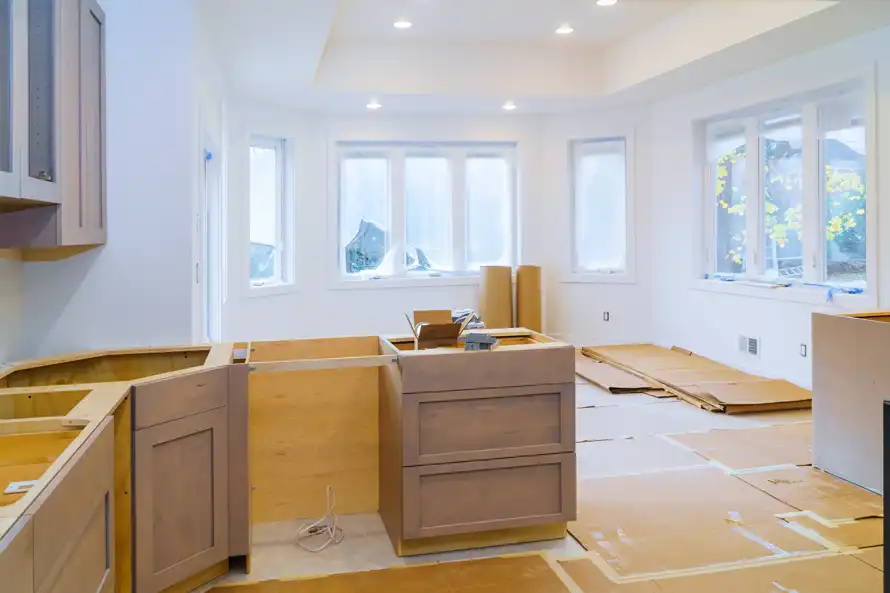Quick Overview: Common Contractor Hiring Mistakes Homeowners Make
Hiring the wrong contractor can lead to delays, budget overruns, and poor workmanship. Many issues stem from skipped due diligence, unclear agreements, or focusing on price over quality.
- Licensing and insurance are not verified: Unlicensed or uninsured contractors expose homeowners to financial and legal risk
- Decisions are based on lowest price alone: Cheap bids often result in subpar materials, shortcuts, or unfinished work
- Contracts lack clear scope and timelines: Missing details increase the risk of disputes, delays, and unexpected costs
- Communication expectations are not defined: Poor updates and unclear points of contact create frustration and confusion
- Permits and warranties are overlooked: Skipping permits or guarantees can cause compliance issues and costly repairs
Avoiding these mistakes helps homeowners protect their investment and ensures projects are completed safely and professionally.
How to Choose a Reliable Contractor for Your Home Project
When it comes to home improvement projects, choosing the right contractor is one of the most important decisions you can make. While you may want to skip hiring a general contractor to try and tackle it as a DIY project, it’s best to consider the scope of work. If you can handle it, great! However, working with a contractor can ensure that everything runs smoothly. The right team can bring your vision to life with quality workmanship and peace of mind. But the wrong one? That can lead to delays, stress, and costly mistakes. So, how can you tell the two apart? Here are some of the biggest mistakes homeowners make when hiring contractors and how to avoid them.
10 Mistakes to Avoid When Hiring a Contractor
Whether you want to perform some home renovations or need to schedule repairs, working with a quality contractor is a great way to streamline the process and ensure things don’t get derailed. But how do you evaluate the professionalism and reliability of someone you don’t really know? Here are a few common mistakes to avoid when searching for a contractor.
1. Failing to Verify Licensing and Insurance
One of the most important, yet often overlooked, steps in hiring a contractor is confirming that they’re correctly licensed and insured. This isn’t just a formality; it’s protection. When a contractor is licensed, it means they’ve met specific standards of professionalism and are authorized to work in your area. While they don’t need excessive certifications for every little thing, licensing for the job they’re performing (i.e., HVAC, home exterior, roofing) is the bare minimum. On the other hand, insurance protects you from liability in case of property damage or injuries during the project.
Homeowners who skip this step could not only face subpar work, but they also put themselves at significant financial risk. If something goes wrong on the job site and your contractor isn’t insured, you might be left with the bill or worse, a lawsuit. Always ask to see current documentation and follow up with the appropriate licensing authority to confirm everything is in good standing.
2. Not Checking References and Past Work
You wouldn’t hire an employee without looking at their resume, so why hire a contractor without reviewing their previous work? Too often, homeowners skip this step, especially when a contractor seems personable or gives a good sales pitch. But a polished introduction doesn’t always guarantee a polished final result.
Ask for a portfolio of completed projects similar to what you’re planning. More importantly, request a list of references and follow up with those homeowners. Ask about the contractor’s professionalism, timeliness, communication, and whether they would hire the same team again. These conversations can reveal red flags or reinforce that you’re making the right choice.
Ask friends or family members for referrals if you don’t know where to find a reputable contractor. This way, you’re working with someone who’s already proven their trust and expertise. You can also ask around at work or in the community, as this gives you a good starting point for your research.
3. Choosing Based Solely on Price
Everyone wants a good deal when planning a big project. But choosing the lowest bid can sometimes be the costliest mistake. A contractor who offers a significantly lower price than others may be cutting corners with cheap materials, less experienced labor, or an unrealistic timeline. In the end, the money you save upfront will likely be put into repairs, additional renovations, or even legal troubles.
Instead of going with the cheapest quote, compare estimates carefully and examine what each one includes. Consider the quality of materials, the projected timeline, and the contractor’s reputation. You should have clearly defined payment terms before any work starts. And remember, a slightly higher price tag might mean better value in the long run, so it’s worth the initial investment.
4. Lack of a Detailed Written Contract
Verbal agreements might feel like a show of trust, but nothing beats a written contract in construction. When initially discussing the project scope, you might have an outline to review so both parties clearly understand what’s wanted. However, don’t let any work begin without a well-documented written agreement that covers all expectations, responsibilities, deliverables, and deadlines.
Your contract should include a detailed scope of work, start and end dates, payment schedules, materials being used, and any warranties. It should also cover what happens if the project is delayed, changes are requested, or issues arise. The more thorough the contract, the less room for confusion or dispute.
5. Not Clarifying Project Timelines
Every homeowner has a vision for when their project will be completed, but if that vision isn’t discussed with the contractor, it might not align with reality. Projects that drag on indefinitely can disrupt your daily life and even lead to additional costs. During the initial planning stage, ask for a realistic start date and a projected end date. Make sure it’s a reasonable timeline, and if you have any questions or concerns, don’t hesitate to ask them. You may also want to discuss major milestones to better understand how a project is progressing. Ensure your contractor has a plan for handling delays, weather issues, or material shortages, and get it in writing to keep everyone accountable.
6. Overlooking Communication Practices
Communication is key throughout the entire project, from the first consultation to the final walkthrough. Unfortunately, many homeowners assume that regular updates will happen automatically, and that’s not always the case. Without establishing clear expectations, poor communication may be the norm. If you’d prefer more check-ins, talk to your contractor before things start. Setting clear communication expectations upfront reduces misunderstandings and helps you stay informed.
7. Ignoring Warranty and Service Guarantees
A contractor who truly stands behind their work won’t hesitate to offer a warranty. Unfortunately, some homeowners overlook this detail entirely, only to discover that something wasn’t installed correctly or needed repairs far sooner than expected. So, always ask about warranties and service guarantees before signing a contract. Get the warranty in writing and keep it safe in case you need it.
8. Not Discussing Cleanup and Disposal
Another common mistake is assuming that post-project cleanup is included. If it’s not, you could be left with a driveway full of debris. Always ask your contractor who is responsible for removing waste, hauling away old materials, and sweeping up the job site. Ensure those responsibilities are written into your contract so there are no surprises once the work is complete.
9. Skipping the Permit Process
Permits may feel like a hassle, but they exist for a reason: to ensure the safety and legality of your project. If a contractor suggests skipping permits to save time or money, that’s a major red flag. Working without proper paperwork could lead to an array of issues down the line, so it’s simply not worth the risk. A reputable professional will handle the permitting process and ensure everything is up to code.
10. Not Trusting Your Instincts
Sometimes, all the paperwork checks out, but something just doesn’t feel right. Maybe the contractor dodges questions, rushes the process, or avoids putting things in writing. Your instincts matter, and ignoring them can lead to regret. If you feel uneasy at any point in the hiring process, it’s okay to walk away. There are plenty of skilled, trustworthy contractors who will take the time to make you feel confident in your decision. Don’t settle for anything less.
How to Find a Reputable Home Exterior Contractor
Hiring a contractor isn’t just about finding someone who can do the job; it’s about finding someone who will do it right. Taking the time to verify credentials and lay a solid foundation with clear communication and documentation can make all the difference in the outcome of your project. If you’re looking for a contractor to help with your home exterior needs, look no further than First Star Exteriors.
Our team prides itself on doing things the right way, from transparent quotes to detailed contracts and exceptional craftsmanship. So, if you’re planning a residential improvement project and want to work with a contractor who values your trust, contact us for a free estimate.





